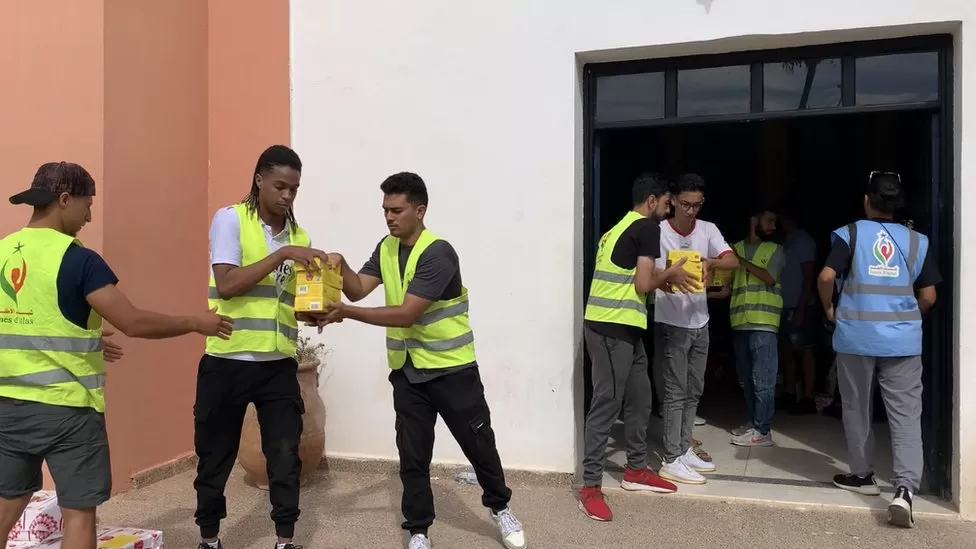MOROCCO’s young are powering their country’s desperate relief effort. In Taroudant’s youth centre, volunteers from across the city and beyond have been answering calls for help on social media.
Activists with rapidly rising numbers of followers are now coordinating the distribution of aid to the hundreds of communities without the most essential items.
Milk, nappies, jam and bedding are all being passed along human chains, loaded into trucks destined for villages dotted across the Atlas mountains. In many areas, this grassroots effort is getting supplies to those in need faster than official help.
“People are in danger. If we didn’t work so quickly, a lot of people are going to die,” says 21-year-old Ilyas, as he seals another box.
The Moroccan government has been criticised for rejecting assistance from some countries, including France and Germany.
But Amina, who has arrived with her sister Nassib from the city of Inezgane, tells us she respects the decision.
“Our country knows what it’s doing. If we need help, we will ask for it. The government – they know more,” she says.
As donations flood in, the biggest challenge is organising the aid and getting it out of the city as fast as possible.
Across the city of Taroudant, you hear truck engines revving as they set off for the mountains.
The exact destination of each mission is often decided at the last minute and dependent on the nature of calls for help coming in. Top priority is given to the places that are still to receive aid.
The mountain homes hardest hit by the earthquake feel like another planet. Peaks stretch far into the distance and the volunteer delivery vans lumber and splutter over orange dirt roads, passing vertiginous drops.
In the village of Ouge Dimt, a man rushes to greet a van bringing rugs, mattresses and tarpaulins, and urgently shouts parking instructions to the driver.
This village of 40 families has been crushed by the earthquake and people are gathering underneath the trees, in the shadow of their destroyed homes.







